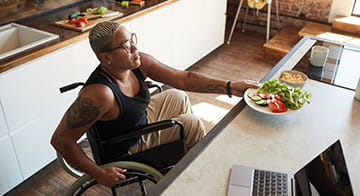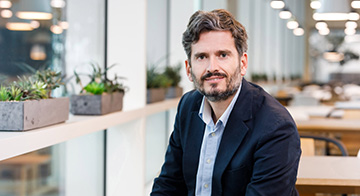
Your Wellbeing
Our collection of health and wellbeing information to support you at home and abroad. Explore to find advice and tips from Bupa experts and to hear the latest from the Bupa Global team.
Browse by category
Recent
General health
navigate_next
How to stay well this flu season

The end of the willpower era: Discover new ways to help you stay active

Health on the move: the benefits of virtual care

How to keep your brain healthy and active

Tips to help you build and maintain a healthy morning routine

How to build healthy habits

How often should you eat?

Understanding your recommended daily water intake

Understanding jet lag
See all articles in General health
Blua: Digital health by Bupa
Blua offers easy and convenient access to digital healthcare, whenever and wherever you need it. All at no additional cost. Including virtual doctor consultations at times that suit you, and diagnosis and treatment plan reviews with international medical experts. Expert care, all at the touch of a button.
Explore Blua digital healthcare
arrow_forward
Healthy mind
navigate_next
The mindfulness blueprint: An expert’s secrets for daily calm

Hormones and mental health

Neurodiversity and childhood: a parent’s perspective

How to support your child’s mental health when moving to a new country

The importance of play for family mental health

Managing mental health during times of stress without self-medicating

Talking about mental health: How to help and support someone

Eco-anxiety: supporting young people’s mental health
Eco-anxiety is on the rise in young people. Discover practical tips to ...

Exercise and mental health
See all articles in Healthy mind
Healthy body
navigate_next
Overlooked no longer: New leaps in endometriosis research

Unlock the benefits of strength training during menopause
The changes that come with the peri-menopause and menopause can affect ...

Why active recovery matters: the best way to rest

Supporting your bone health

Can we prevent osteoporosis and osteoarthritis?

How to stay safe and well in the sun

Understanding the causes of high cholesterol

Dispelling the myths of heart health

Keeping a heart-healthy lifestyle
See all articles in Healthy body
Wellbeing at work
navigate_next
Adding movement to change a sedentary lifestyle

Mental health and wellbeing in the workplace

Sustainability and mental health pressures prompt senior career transitions

The boardroom of the future
Diversity in the workplace is more important than ever as global leaders...

Empathy at the top
See all articles in Wellbeing at work
Discover Bupa Global
navigate_next
Bupa Global’s mental health coverage

Inside Cromwell Hospital, a renowned cancer specialist hospital in London

Bupa Global launches 2022 Executive Wellbeing Index

The key to boosting digital health adoption and engagement

Is 2021 a watershed moment for ESG goals?

Bupa Global launches 2021 Executive Wellbeing Index
